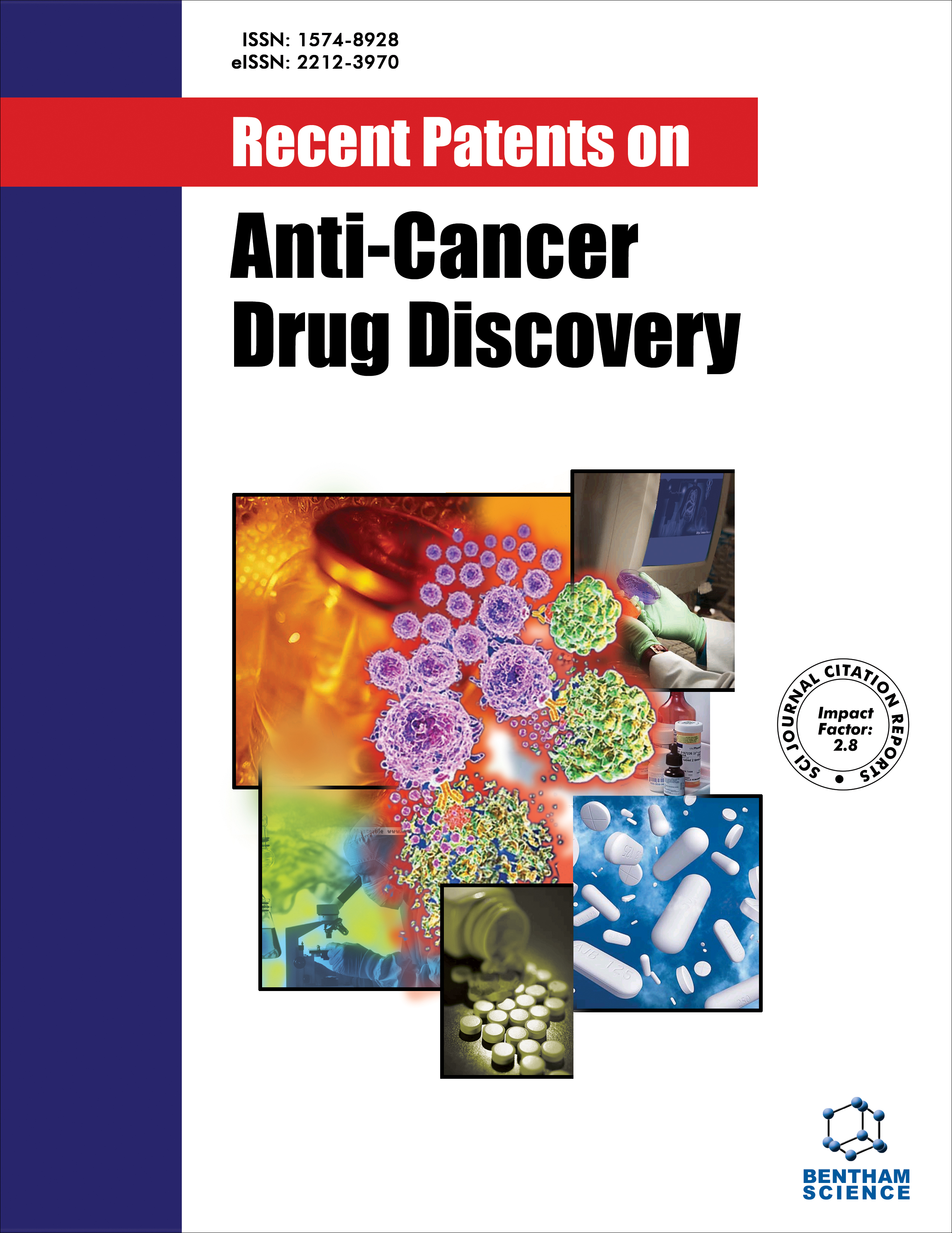-
s The Efficacy and Safety of Anlotinib Alone and in Combination with Other Drugs in Previously Treated Advanced Thymic Epithelia Tumors: A Retrospective Analysis
- Source: Recent Patents on Anti-Cancer Drug Discovery, Volume 18, Issue 4, Nov 2023, p. 528 - 537
-
- 01 Nov 2023
Abstract
Background: Thymic epithelial tumors (TETs) are rare thoracic malignancies with no standard second-line treatment. Tumor angiogenesis is closely associated with the pathogenesis and invasiveness of TETs. Anlotinib is a small-molecule multitarget tyrosine kinase inhibitor (TKI) which inhibits tumor angiogenesis and tumor cell proliferation. Published studies have demonstrated the promising clinical effect of multitarget TKIs sunitinib and lenvatinib in previously treated TETs. However, TKIs have a high incidence of adverse events (AEs). Objective: In this study, we investigated the clinical efficacy and safety of anlotinib in previously treated TET patients. Methods: We collected clinical data of 22 patients from Shandong Cancer Hospital and Institute between October 2018 and March 2022. These patients were diagnosed with advanced TETs and received at least the first-line (1st-line) treatment. We analyzed the clinical effects between anlotinib monotherapy and anlotinib combination therapy in the second-line (2nd-line) or anlotinib treatment in different lines. Results: These 22 patients included 18 cases of thymic carcinoma (TC) and 4 cases of thymoma (T). 68.2% of patients were males, and the median age was 53 years. Fourteen patients (63.6%) received anlotinib monotherapy and 8 patients (36.4%) received anlotinib combination therapy. The objective response rate (ORR) was 9.1% in the overall patients. The median progression-free survival (PFS) in the overall population was 12 months (14 months for T and 9 months for TC), and the median overall survival (OS) was 24 months (survival was not reached for T and was 24 months for TC). The incidence of AEs was 50%, most of them were grades I and II, and the incidence of grades III and IV AEs was 9%. Conclusion: This is the first study reporting the clinical effect of anlotinib in previously treated TETs patients. The survival data indicate that the efficacy of anlotinib is superior to sunitinib and lenvatinib. Our results suggest that anlotinib is a promising treatment option for previously treated TET patients and its toxicity is tolerable. More research and patents are needed in the future to explore better options for the diagnosis and treatment of TETs.


